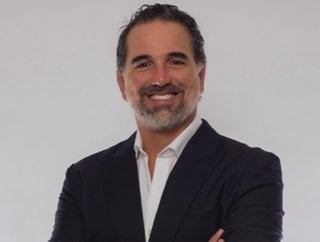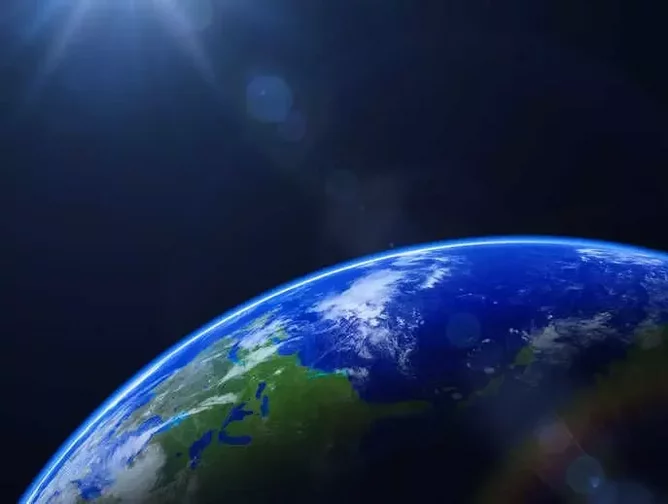New development model based on sustainability needed

Today is Earth Overshoot Day - the day when humanity's demand for ecological resources and services in a given year exceeds what Earth can regenerate in that year.
Ecuador’s Minister of Environment, Water and Ecological Transition, Gustavo Manrique, hosted a special event to mark Earth Overshoot Day 2022 (28 July). Manrique said: “Earth Overshoot Day demonstrates that the current system of production and consumption is not compatible with the intention to continue to inhabit this planet. To better protect our natural resources and manage our demand for them, it is necessary to take concrete joint actions aimed at a new development model based on sustainability and regeneration. From Ecuador we call on the world to commit to this cause."
Manrique was joined at the event by Global Footprint Network founder Mathis Wackernagel, Viceminister of Foreign Affairs and Human Mobility Luis Vayas Valdivieso, and supported by video statements from ministers from around the world. The event can be seen here.
In 2008, Equador it made history when it became the first country in the world to grant nature legally-enforceable constitutional rights to ”exist, flourish and evolve” through an overwhelming popular vote. Ecuador ranks as one of the countries whose Overshoot Day arrives the latest in the year (6 December 6 this year), which means its Ecological Footprint per person is only slightly higher than the worldwide average biocapacity per person.
The date of Earth Overshoot Day is calculated each year by Global Footprint Network, using National Footprint and Biocapacity Accounts data. This day reminds us that the persistence of overshoot, now for over half a century, has led to huge decline in biodiversity, excess greenhouse gases in the atmosphere, and heightened competition for food and energy. These symptoms are becoming more prominent with unusual heat waves, forest fires, droughts, and floods.

The economic pressures are already playing out. As Global Footprint Network’s research shows, that by now more than 3 billion people live in countries which produce less food than they consume and generate less income than world average. This means they have inadequate food capacity and a huge disadvantage in accessing food on global markets. If we include all resources, not just food, the number of people exposed to this double challenge climbs to an astonishing 5.8 billion people.
“Resource security is turning into an essential parameter of economic strength. There is no advantage in waiting for others to act first. Rather, it is in the interest of every city, company, or country to protect its own ability to operate in the inevitable future of more climate change and resource constraints.” commented Mathis Wackernagel, founder of Global Footprint Network.
“Cities hold the key to clean infrastructure transformation. Quito for its conservation of protected areas, Santiago de Chile for its number of electric buses, or Bogota for its bike paths show how local governments give their cities a better chance to have a solid future,” said Sebastian Navarro, Secretary General of CC35, the Coalition of Capital Cities of the Americas on Climate Change.

Sustainability Magazine spoke to Sam Jackson, Senior Climate & Environmental Impact Manager at climate tech start-up Ecologi to get his thoughts on how we can move in the right direction forward.
He said: “Earth Overshoot Day is moving in the wrong direction, that is - it’s moving up the calendar. This year it lands just 154 days into the year and is the earliest ever recorded. This, and the wildfires and record breaking temperatures we saw in the UK just last week, should be treated as a cause for alarm. Instead, during Monday’s leadership debate, more time was dedicated to discussing Liz Truss’ earrings and Rishi Sunak’s taste in suits and shoes than the climate crisis. The looming global recession also means companies are starting to lay off workers, including a disproportionate number of ESG staff as sustainability and climate action falls down the agenda.
“Despite the economic challenges facing people and business, it’s an issue that can’t take a backseat. We all need to step up and take responsibility when it comes to over use of resources and the emissions we produce. Becoming sustainable and reaching net zero goals needn’t be difficult or expensive. In fact, it’s never been simpler to track your emissions, measure your carbon footprint and understand the inefficiencies in your supply chain and internal business processes. All that’s needed is a drive to operate more efficiently and to raise awareness among your colleagues and business partners.”
“Through collective action like this, we can effect real, positive change in spite of the political and economic climate, delaying Earth Overshoot Day further each year and pushing it back down the calendar.”






